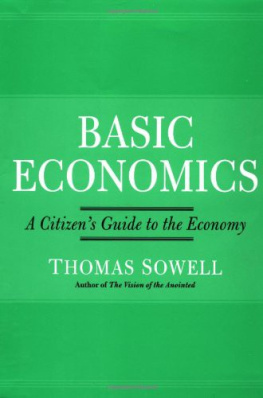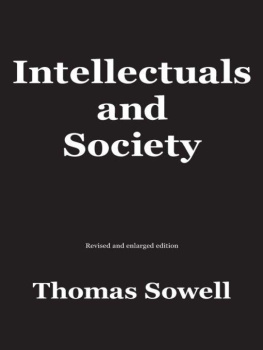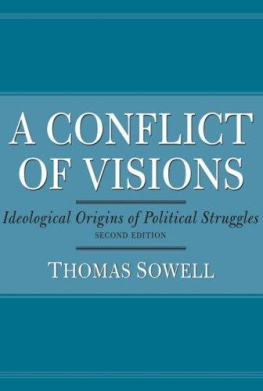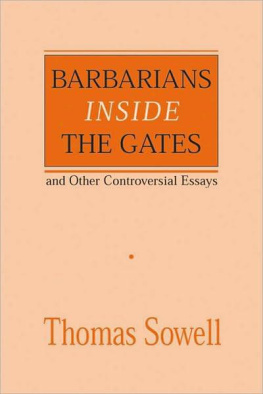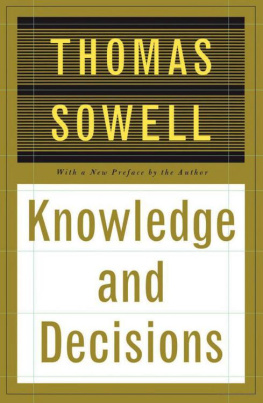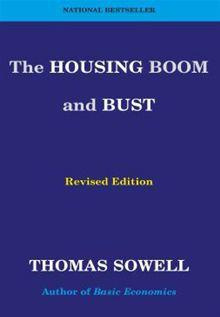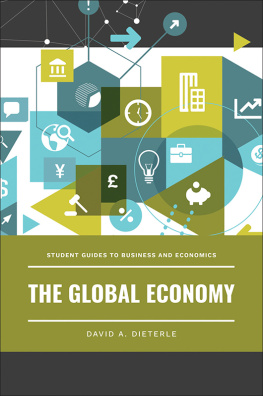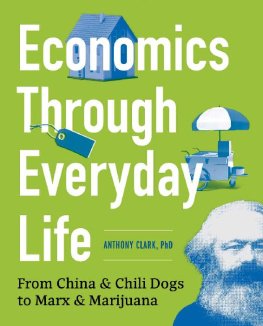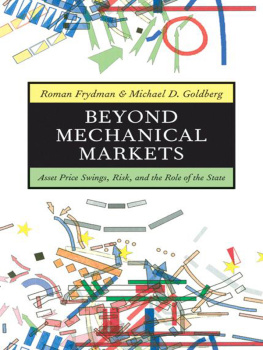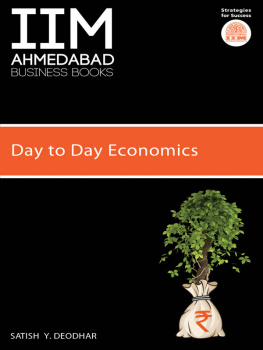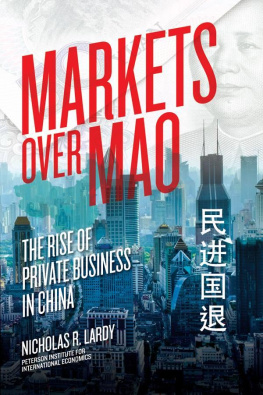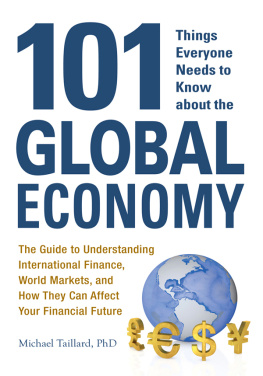BASIC ECONOMICS
A Citizen's Guide to the Economy
REVISED AND EXPANDED EDITION
THOMAS SOWELL
Basic Books A Member of the Perseus Books Group New York
Copyright @ 2004 by Thomas Sowell Published by Basic Books, A Member of the Perseus Books Group All rights reserved. Printed in the United States of America. No part of this book may be reproduced in any manner whatsoever without written permission except in the case of brief quotations embodied in critical articles and reviews. For information, address Basic Books, 387 Park Avenue South, New York, NY 10016-8810.
Books published by Basic Books are available at special discounts for bulk purchases in the United States by corporations, institutions, and other organizations. For more information, please contact the Special Markets Department at the Perseus Books Group, 11 Cambridge Center, Cambridge MA 02142, or call (617) 252-5298, (800) 255-1514 or e-mail .mccrary@perseusbooks.com.
Sowell, Thomas, 1930 Basic economics: a citizens guide to the economy / Thomas Sowell.Rev. and expanded ed.
p. em.
Includes bibliographical references and index.
ISBN 0-465-08145-2 (talk. paper) 1. Economics. I. Title.
HB171.S7132003 O-dc21
2003013778
04 05 06 / 10 9 8 7 6 5 4 3 2 1
A few lines of reasoning can change the way we see the world.
Steven E. Lansburg
CONTENTS
Preface
1 What is Economics?
PART I: PRICES AND MARKETS
2 The Role of Prices
3 Price Controls
4 An Overview
PART II: INDUSTRY AND COMMERCE
5 The Rise and Fall of Businesses
6 The Role of Profits -and Losses
7 Big Business and Government
8 An Overview
PART III: WORK AND PAY
9 Productivity and Pay
10 Controlled Labor Markets
11 An Overview
PART IV: TIME AND RISK
12 Investment and Speculation
13 Risks and Insurance
14 An Overview
PART V: THE NATIONAL ECONOMY
15 National Output
16 Money and the Banking System
17 The Role of Government
18 An Overview
PART VI: THE INTERNATIONAL ECONOMY
19 International Trade
20 International Transfers of Wealth
21 An Overview
PART VII: SPECIAL ECONOMIC ISSUES
22 "Non-Economic" Values
23 Myths About Markets
24 Parting Thoughts
Questions
Sources
PREFACE
This is the revised and enlarged edition of an introduction to economics for the general public. In addition to being updated, Basic Economics has also become more internationalized by including information from more countries around the world, because the basic principles of economics are not confined by national borders. The fact that the first edition of this book has already been translated into Japanese and Polish suggests that others recognize this as well.
While most chapter titles remain the same, their contents have changed considerably, reflecting the experiences of many different peoples and cultures.
Basic Economics has two main purposes. The first is to show certain general principles which apply in any economy-whether capitalist, socialist, feudal, or whatever. Another equally important purpose is to get the reader to look at economic policies and economic systems in terms of the incentives they create, rather than simply the goals that they proclaim. This means that consequences matter more than intentions-and not just the immediate consequences. The longer run repercussions of any economic policy need to be considered by the public, especially because so many public officials may not look beyond the next election.
This book was written both for the general public and for students in introductory economics courses. It has none of the graphs, equations, or statistical tables usually found in economics books. Nor does it use the technical jargon of economists. What I have learned after many years of teaching and writing about economics is that there are highly intelligent people who want to understand more about the way the economy works, but who have no interest in the paraphernalia of the economics profession. This book is written for such people.
Many other kinds of people may also find Basic Economics useful, including journalists who often comment on economic issues without having any background in the subject. Even scholars with Ph.D.s in other fields are often uninformed or misinformed about economics, though that seldom deters them from having and voicing opinions on economic issues.
Most of us are necessarily ignorant of many complex fields, from botany to brain surgery.
As a result, we simply do not attempt to operate in, or comment on, those fields. However, every voter and every politician that they vote for affects economic policies. They cannot opt out of economic issues.
Their only options are to be informed or not informed when making their choices. Basic Economics is intended to make it easy for them to be informed.
The basic principles of economics are not hard to understand but they are easy to forget, especially amid the heady rhetoric of politics and the media.
The vivid examples used throughout this book make these principles indelible, in a way that graphs and equations may not.
In keeping with the nature of Basic Economic as an introduction to economics for the general public, the usual footnotes or end-notes are left out.
However, those who wish to check up on some of the surprising facts they will learn about here can find the sources listed at the end of the book. That will also be a place for those who simply wish to find other books and articles to read, in order to explore further on some subject that they find intriguing. For instructors who are using Basic Economics as a textbook in their courses, some essay questions have been added at the back of the book.
These questions may also be useful to parents who are homeschooling their children.
While it is advisable to understand the role of prices in a market economy before going on to other subjects, each chapter of this book has been written to stand alone, so that these chapters may be read in whatever order your own interest leads you to prefer. Whether you are reading Basic Economics for a course or just for your own understanding of the economy, it has been written with the thought that it should be not only a relaxed experience, but also an enjoyable one.
THOMAS SOWELL Hoover Institution Stanford University
(1) 'Much as I might like to take credit for all this information, I must admit that my research assistant, Na Liu, did most of the hard work.
Chapter 1
What Is Economics?
You can't have it all Where would you put it?
-ANN LANDERS
Virtually everyone agrees on the importance of economics, but there is far less agreement on just what economics is. Among the many misconceptions of economics is that it is something that tells you how to make money or run a business or predict the ups and downs of the stock market. But economics is not personal finance or business administration, and predicting the ups and downs of the stock market has yet to be reduced to a set of dependable principles.
To know what economics is, we must first know what an economy is. Perhaps most of us think of an economy as a system for the production and distribution of the goods and services we use in everyday life. That is true as far as it goes, but it does not go far enough. The Garden of Eden was a system for the production and distribution of goods and services, but it was not an economy, because everything was available in unlimited abundance. Without scarcity, there is no need to economize-and therefore no economics. A distinguished British economist named Lionel Robbins gave the classic definition of economics:
Next page
